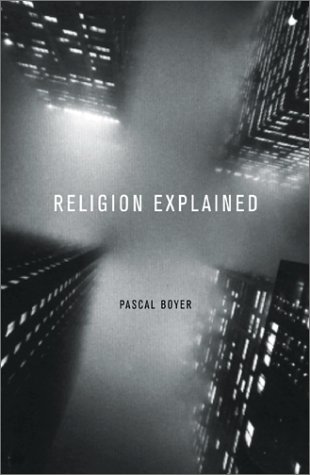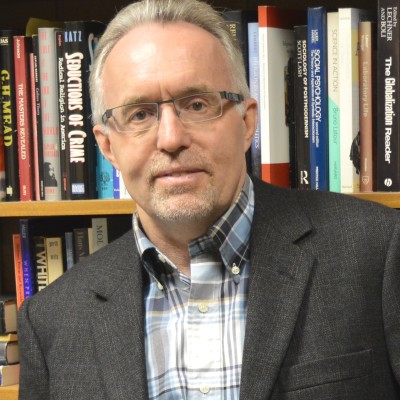The following is copied with permission from THE SECOND WAVE OF THE NEW ATHEISM
A Manifesto for Secular Scriptural Scholarship and Religious Studies
This Manifesto was initiated in the summer of 2015 by Hector Avalos and André Gagné.
Please contact the authors if you wish to add your signature.
Hector Avalos
Iowa State University
Ames, Iowa
HectorAvalos@aol.com
André Gagné
Concordia University
Montreal, Canada
Gagne.Andre@hotmail.com
BACKGROUND
The New Atheism is a name given to a movement represented by Richard Dawkins, Daniel Dennett, Sam Harris, and Christopher Hitchens, all of whom wrote best-selling books that were highly critical of religion.[1]
Although the New Atheism does not eschew the classical arguments against the existence of God, its focus is primarily on the immorality and harmful consequences of religious thinking itself. For some, the New Atheism is not merely atheistic, but also anti-theistic.[2]
Another main feature of the New Atheism is a secular apocalyptic outlook born out of the events of September 11, 2001. A secular apocalyptic outlook refers to the view that religion has the potential to destroy humanity and our entire biosphere.
However, many secular and religious critics of the New Atheism have charged the New Atheism with a number of flaws. One is a lack of expertise in scriptural and religious studies that has led Dawkins, Dennett, Harris, and Hitchens to make pronouncements that are rightly viewed as simplistic or inaccurate in some cases.
This situation has led to the perception that the New Atheism has no experts in scriptural and religious studies that could challenge religious counterparts with as much or more expertise. Others have conflated all New Atheists as followers of a neoliberal or capitalist ideology. Still others note that all the representatives of the New Atheism are white males.
Accordingly, there is a need to identify a Second Wave of the New Atheism. Such a need was discussed briefly in Hector Avalos, The Bad Jesus: The Ethics of New Testament Ethics (Sheffield: Sheffield Phoenix Press, 2015), but it received no elaboration.[3]
The First Wave focused on the problems that religious thinking can cause. Since religion was the focus of the First Wave, then a Second Wave seeks to rethink how self-identified atheist scholars of religion and scripture approach the issues that the First Wave raised.
The recent uprising of terror attacks across the globe from groups like ISIL, Boko Haram, Al-Shabab, and others, is also one of the reasons why scholars of religion and scriptural studies who identify with a Second Wave of New Atheists should speak out against the catastrophic effects of religious violence and ideology.
The authors of this statement, Hector Avalos and André Gagné, thought it useful to identify the main characteristics of what can be called a Second Wave of the New Atheism. Our hope is that other secular scholars who have similar ideas might join us or help us to clarify the nature and purpose of scriptural scholarship and the study of religion as it relates to current global events in the coming decades.
A MANIFESTO FOR SECULAR SCRIPTURAL SCHOLARSHIP AND RELIGIOUS STUDIES
Insofar as we believe that religious belief has the potential to incite actions that could ultimately lead to the destruction of our planet, we identify ourselves with what is called “the New Atheism.” We affirm that a Second Wave of the New Atheism exists insofar as that descriptor encompasses self-identified atheist scriptural scholars or scholars of religion who:
- Are academically trained experts in the study of religion and sacred scriptures (e.g., the Bible, Quran, and any other text deemed sacred on religious grounds);
- Regard activism as a fundamental orientation of all scholarship insofar they agree with Noam Chomsky’s view that “[i]t is the responsibility of intellectuals to speak the truth and to expose lies”;[4]
- Uphold and defend freedom of expression;
- Question the notion that religious thinking is itself good or ethical;
- Acknowledge that human ethics need not depend on religion;
- Welcome as wide a diversity of scholars as possible in terms of ethnic self- identification, gender, or sexual orientation;
- Recognize that most of biblical scholarship is still largely part of an ecclesial-academic complex that renders it very distinct from other areas of the humanities and social sciences, especially insofar as it seeks to protect and preserve religion as a valuable feature of human existence;
- Aim to expose the bibliolatry that still lies at the core of biblical studies insofar as most biblical scholars believe the Bible should be a vital part of modern cultures or bears superior ethical values;
- Advocate the discontinuation of the use of any sacred scripture as a moral authority in the modern world;
- Acknowledge that the traditional scriptural canons are an artificial theological construct, and encourages scriptural scholarship to study all texts considered authoritative or sacred by ancient religions;
- Call attention to the ethical advances or positive features of texts in the ancient Near East that have not received due attention;
- Seek to make scriptural and religious studies relevant by encouraging scholars of sacred scriptures and religions to engage in public discussions and/or use cyber-media to educate the public about issues such as the role of religion in violence and the use of sacred scriptures to oppose gay rights, contraception, gender equality, and other social and human rights issues that should be adjudicated on non-religious grounds;
- Encourage secular scholars of religion and sacred scriptures to help establish policies that are based on reason and democratic values instead of religion; they should be the guardians of a strict separation between religion and state;
- View cooperation with scientists as a necessary strategy to challenge those who use sacred scriptures to deny the existence of evolution or anthropogenic climate change, among other general scientific conclusions;
- Work to ensure that professional organizations of scriptural and religious studies, such as the Society of Biblical Literature and the American Academy of Religion, insist on methodological naturalism, and not theological methodologies, in their basic approach to all research presented at its meetings, as is the case with all other areas of the humanities and social sciences;
- Affirm that religious obscurantism can only be countered through education;
- Insist on critical education that focuses on a historical and social understanding and development of religion; that is, teaching and education that is fact-based instead of faith-based; people should know ABOUT religions and religious texts, not in the sense of maintaining the value of any religious tradition, but to develop critical thinking about religions;
- Regard the study of the Bible, the Quran, and other sacred scriptures as important in understanding western history and modern culture, but without seeking to retain their moral authority.
Scholars who share these views may not identify themselves as any sort of New Atheists or as part of any Second Wave of the New Atheism. Indeed, some of the following signatories do not necessarily apply those labels to themselves. When the co-authors say that “a Second Wave of the New Atheism exists…” they are affirming the existence of people who already think this way, but may not have identified as such explicitly up to now.
However, we invite all scholars who share these views to join us in expressing, or putting into practice, any or all of the ideas and goals that we have outlined here.
SIGNATORIES:
Marc-André Argentino, PhD student, Department of Religion, Concordia University (Montreal, Quebec, Canada)
Kenneth Atkinson, Professor of History. University of Northern Iowa Department of History, University of Northern, Iowa, (Cedar Falls, Iowa, USA)
Hector Avalos, Professor of Religious Studies, Iowa State University (Ames, Iowa, USA)
Carol Delaney, Associate Professor, Emerita, Cultural and Social Anthropology, Stanford University (Stanford, California, USA)
Matthew Ferguson, PhD student, Department of Classics, University of California at Irvine (USA)
André Gagné, Associate Professor, Departments of Religion and Theological Studies, Concordia University (Montreal, Quebec, Canada)
Karen Garst, PhD, University of Wisconsin, Wisconsin (USA)
Daniel Gullotta, Graduate student, Yale Divinity School (New Haven, CT, USA)
Jaco Gericke, Associate research professor in the subject group Theology and Philosophy, School of Basic Sciences, Faculty of Humanities, North-West University (Vaal Campus, South Africa)
James Linville, Faculty, Department of Religious Studies, University of Lethbridge (Lethbridge, Canada).
David Madison, PhD in Biblical Studies, Boston University (USA)
Ivan Miroshnikov, Graduate student, Department of Biblical Studies, University of Helsinki (Helsinki, Finland)
Emmanuel Pradeilhes, MA in Biblical Studies, Faculté de théologie et de sciences des religions, Université de Montréal (Montreal, Quebec, Canada)
Jennifer Tacci, Graduate student, Department of Theological Studies, Concordia University (Montreal, Quebec, Canada)
_______________________________
Notes
* This Manifesto was first published on The Bible and Interpretation website on January 7, 2016
[1] According to Victor Stenger (The New Atheism: Taking a Stand for Science and Reason [Amherst, NY: Prometheus, 2009], p. ii), who describes himself as a New Atheist, the New Atheism was motivated primarily by 9/11 and began with “a series of six best-selling books that took a harder line against religion than had been the custom among secularists.” Harris (The End of Faith, p. 323) states that he “began writing this book on September 12, 2001,” which clearly shows the link between 9/11 and the rise of the New Atheism. On the New Atheism among ethnic minorities, see Hector Avalos, ‘The Hidden Enlightenment: Humanism among US Latinos’, Essays in the Philosophy of Humanism 20 (2012), pp. 3-14.
[2] When speaking of the atrocities in the Bible, Christopher Hitchens stated “…it helps make the case for ‘anti-theism.’ By this I mean the view that we ought to be glad that none of the religious myths has any truth to it, or in it” (god is not Great: How Religion Poisons Everything [New York: Hachette, 2007], p. 102).
[3] Jaco Gericke (“A Fourth Paradigm?: Some Thoughts on Atheism in Old Testament Scholarship,” Old Testament Essays 25/3 [2012]: 518-533) speaks of the emergence of a Fourth Paradigm in Old Testament scholarship that is essentially atheistic. This Manifesto extends to all scriptural and religious studies, not just the Old Testament.
[4] Noam Chomsky, “The Responsibility of Intellectuals,” in The Chomsky Reader, edited by James Peck (New York: Pantheon Books, 1987), p. 60.
Like this:
Like Loading...








